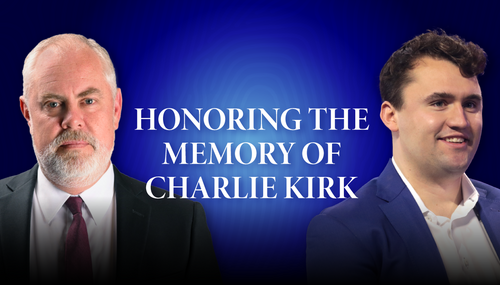On Mother’s Day, Meet the Press moderator Chuck Todd and NBC contributor Maria Shriver, former First Lady of California, bemoaned that the United States ranked far behind Norway in government mandated services, such as paid maternity leave, for all women.
Todd began the segment by noting that of the best places in the world to be a mother “we’re number 33, behind almost every single other industrialized nation. Number one on the list? It is Norway.”
The Meet the Press moderator then played a clip of an interview he conducted with Norwegian Prime Minister Erna Solberg to promote her nation’s mandatory paid leave. Todd eagerly used her comments to springboard into a discussion about enacting such policies across the United States.
Todd went on to ask Shriver why the U.S. was so far behind Norway in such government mandates, which the liberal NBC contributor eagerly expanded upon:
Well, there are a lot of reasons. And I think this points to this being a critical time in our culture for mothers. You know, two-thirds of American families rely on the mother’s income to stay above the poverty level. Women in a majority of American families are primary bread-winners or co-bread-winners and caregivers. And the fact is that our policies and our institutions have not kept up with the changing dynamic in the home.
 Later in the segment, Chuck Todd complained that unlike much of the industrialized world the United States had no mandated maternity leave:
Later in the segment, Chuck Todd complained that unlike much of the industrialized world the United States had no mandated maternity leave:
Just three states mandate paid maternity leave, California, New Jersey and Rhode Island. Among 193 member states of the United Nations, the United States and seven other countries have no paid maternity leave. Five of those seven countries are Pacific Island nations.
Later on, Shriver proclaimed that its "inconceivable that we don't have maternity leave" which prompted Todd to ask “why do you think we have not done this as a government?" The former First Lady of California then strongly urged the federal government to follow California’s example in forcing companies to offer paid maternity leave:
That’s a good question that will come up in this presidential election. And I think that, you know, when they started with paid leave out here in California, people said, “Oh, my God, all the businesses will die.” Well, that hasn’t turned out to be the case. Paid leave has turned out to be good for business. Things are changing, and I think, as Cathy said, millennials are demanding this out here in California.
See relevant transcript below.
NBC’s Meet the Press
May 10, 2015
CHUCK TODD: Welcome back. Of course it’s Mother’s Day today. And in a moment we’re going to talk to a group of working mothers about how American moms are doing. But let’s start with how things have changed from the days of “Leave it to Beaver” to “Modern Family.” For one thing, Mom is older than she used to be. In 1960, 74 percent of women who gave birth were under the age of 30. In 2013, that number dropped to just 59 percent. Mom’s also better educated. Back in 1960, only 18 percent of mothers had attended some college.
Now it’s a majority of mothers, 60 percent. But, married women who work full-time still make less than married men. In fact, married men with kids make an average of $985 per week, married women with children $756 a week, and there are more single-mom households. In 1960, just 8 percent of children lived only with their mother. That number is now over 20 percent, something that gets lost a lot of times in this.
So where does the U.S. rank on the list of best places to be a mother? Well, according to the Save the Children Mother’s Index that was released this week, which assesses the well-being of mothers around the world, we’re number 33, behind almost every single other industrialized nation. Number one on the list? It is Norway. So I asked the prime minister of Norway why her country is the best place to be a mother.
(BEGIN VIDEO CLIP)
NORWEGIAN PRIME MINISTER ERNA SOLBERG: If you really want women to go to their full potential, use their talent, you have to be able to combine motherhood and labor market participation. And I think we have invested quite a lot to make that happen. And I see around me -- I see my generation of women but also my -- the younger ones, they are -- they are believing in a society where you can both have children and you can work.
(END VIDEO CLIP)
TODD: And joining me now are Cathy Engelbert, the CEO of the accounting and consulting firm Deloitte; Kishanna Brown, a teacher in Maryland; and our own Maria Shriver from Los Angeles. Cathy’s a mother of two teenagers. Kishanna, you have a seven and nine year-old. And, Maria, you’ve got four and, I believe, one at home. So, Maria, let me start with you. We just heard about Norway. But here, the United States ranked 33rd overall on the Save the Children’s index. Why?
MARIA SHRIVER: Well, there are a lot of reasons. And I think this points to this being a critical time in our culture for mothers. You know, two-thirds of American families rely on the mother’s income to stay above the poverty level. Women in a majority of American families are primary bread-winners or co-bread-winners and caregivers. And the fact is that our policies and our institutions have not kept up with the changing dynamic in the home.
--
TODD: You know, Maria, you have done this with the Shriver Report. You have talked about this issue of the income gap. And part of the income issue has to do with childcare costs.
SHRIVER: That’s true, and what she was just saying was more than her rent. I think affordable childcare is obviously really important. So is paid family leave, so are flexible hours. And I think what Cathy also said is she is talking to women and men. This is not just a woman’s issue. Men are demanding flexibility. Men have to step up as fathers.
And we are seeing that it takes two paychecks to live above the brink of poverty. We have 44 million women and something like 28 million children who depend on them on the brink of poverty. And these are women who are working. And I think it’s inconceivable, really, that we don’t have paid leave. It’s inconceivable that we don’t have maternity leave.
TODD: Well, you brought up the paid leave. Let me just point this out. Just three states mandate paid maternity leave, California, New Jersey and Rhode Island. Among 193 member states of the United Nations, the United States and seven other countries have no paid maternity leave. Five of those seven countries are Pacific Island nations. I guess, Maria, why do you think we have not done this as a government?
SHRIVER: That’s a good question that will come up in this presidential election. And I think that, you know, when they started with paid leave out here in California, people said, “Oh, my God, all the businesses will die.” Well, that hasn’t turned out to be the case. Paid leave has turned out to be good for business. Things are changing, and I think, as Cathy said, millennials are demanding this out here in California.
If you look at Silicon Valley, there is a very different culture developing to retain workers. And, also, all the science, I think, is really important to talk about, Chuck. What children need is what mothers provide, which is attachment, which is love, which is nurturing, and what -- women need to spend time. So that’s really the question, is how these policies can support the development for children and the time that women need to spend with them.




